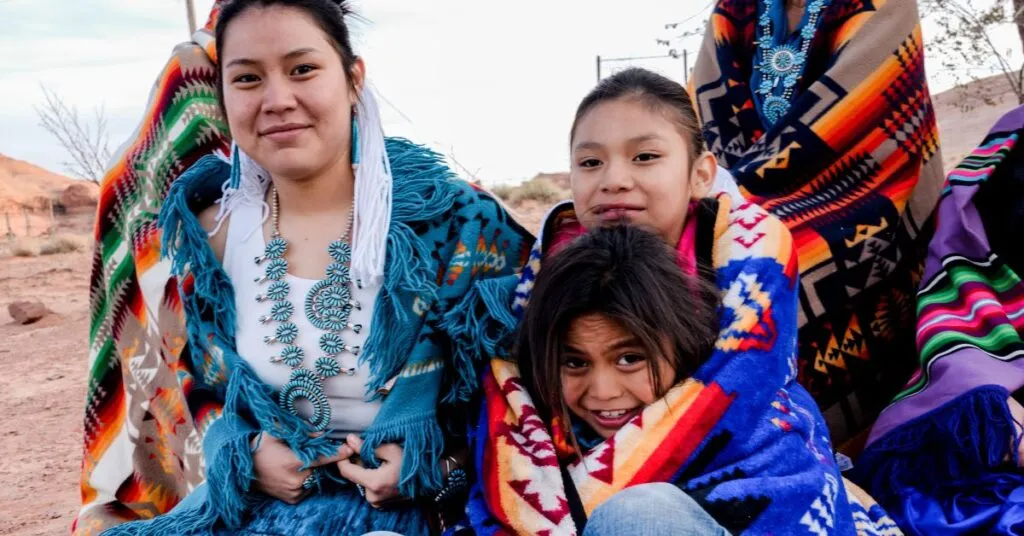If you’re a Native American student, you have access to a variety of scholarships tailored to your unique heritage and aspirations. Whether you’re the first in your family to attend college, a high school senior preparing for the next chapter, or a graduate student advancing your academic goals; there’s a scholarship tailored to fit your journey.
If you’re a high school senior, undergraduate, or graduate student, you’ll want to look for scholarships that fit your education level. Programs like the American Indian College Fund, with over 75 years of empowering Native students, are invaluable resources for those attending tribal colleges, nonprofits, or accredited schools.
At Scholarship Institute, we leverage years of expertise in scholarship research, application strategies, and student success to guide you every step of the way. Let us help you navigate the path of the scholarship search process. We’ll discuss how to apply, tips for applying, and notable scholarship providers.
View our scholarship recommendations and start securing the funding you need today!

Notable Scholarship Providers for Native Americans
There are several organizations that offer scholarships specifically for Native American students.
1. Native Forward Scholars Fund
The Native Forward Scholars Fund is the largest provider of scholarships for Native students, with a specific focus on promoting education in STEM fields (science, technology, engineering, and mathematics).
2. American Indian College Fund
Another important organization is the American Indian College Fund, which is known for providing scholarships to students attending tribal colleges and nonprofit universities.
3. Cobell Scholarship
The Cobell Scholarship is named after Elouise Cobell, a prominent advocate for Indigenous rights. This scholarship offers opportunities for both undergraduate and graduate students who can demonstrate tribal affiliation.
Types of Scholarships Available
In the realm of Native American scholarships, understanding the types available is essential for maximizing educational opportunities. Scholarships typically fall into two primary categories: merit-based and need-based.
Merit-Based Scholarships
Merit-based scholarships acknowledge academic excellence, leadership qualities, or outstanding talents. These scholarships often:
- Reward high GPAs, standardized test scores, or significant achievements.
- Involve rigorous selection processes with criteria focusing on achievements and potential.
Example: Some scholarship providers offer awards for Native American students excelling in STEM fields, recognizing their contributions to science and technology.
Need-Based Scholarships
Need-based scholarships focus on financial assistance rather than academic performance. They are designed to support students who demonstrate a genuine need for financial aid. Key characteristics include:
- Assessment based on family income, economic background, and other financial factors.
Native American students often benefit from need-based scholarships due to historical economic disparities affecting their communities.
Diversity Scholarships
Diversity scholarships aim to promote inclusivity within educational institutions by supporting distinct groups. These scholarships:
- Encourage cultural diversity.
- Foster an environment where diverse perspectives enrich the learning experience.
Example: Certain institutions offer diversity scholarships specifically for Indigenous students pursuing degrees in fields like law or public policy, emphasizing the importance of diverse voices in these areas.

Step-by-Step Guide on Applying for Scholarships
Navigating the scholarship application maze can be daunting, but breaking it down into manageable steps simplifies the journey:
Identify Your Eligibility
Research scholarships specifically designed for Native American students. Pay close attention to eligibility criteria such as tribal affiliation, academic achievements, and intended field of study.
Gather Required Documentation
Common requirements include:
- Tribal Affiliation Documentation: Proof of enrollment or descent from a recognized tribe.
- Academic Records: Transcripts showcasing your educational performance.
- Personal Identification: Such as birth certificates or state IDs.
Prepare Your Application Materials
Ensure all forms are accurately completed and that you adhere to any specified guidelines regarding format and content.
Craft a Personal Statement
Highlight your background, goals, and how the scholarship will support your educational aspirations. Authenticity and clarity are key here.
Request Recommendation Letters
Reach out to teachers, mentors, or community leaders who can provide strong endorsements of your character and achievements.
Submit Your Application
Double-check deadlines and submission methods (online or by mail) to ensure timely delivery of your application package.
Tips on Winning Native American Scholarships
Enhancing the quality of your application can significantly increase your chances of securing funding:
Strategies to Identify Suitable Scholarships
Use scholarship search engines and resources such as Bold.org’s Scholarship Blog to find opportunities tailored to Native American students. Joining scholarship group pages can also streamline this process.
Preparing a Compelling Application Narrative
Your personal statement should tell a story—your story. Focus on experiences that illustrate resilience, leadership, and commitment to education. Tailor each narrative to align with the specific values and mission of each scholarship provider.
The Importance of Recommendation Letters
Select recommenders who know you well and can speak directly about your accomplishments and potential. Provide them with relevant information about the scholarship so they can highlight qualities that align with its objectives.
An excellent way for minority students to get scholarships is to stay on good terms with their teachers. This can benefit high school students because your teachers may write you a letter of recommendation, which adds the perfect touch to an application. Your teacher may also recommend you to their colleagues for voluntary or work experience.
Are you an undergraduate student seeking financial support for your education? Explore our comprehensive list of scholarships designed to empower your academic journey.

Frequently Asked Questions About Scholarships for Native Americans
1. Are There Scholarship Programs for Specific Tribes?
Yes, many scholarship programs are designed specifically for members of certain tribes.Eligibility typically requires proof of tribal membership and may include additional criteria like academic achievement, field of study, or community service.
2. Who is Eligible for Native American Scholarships?
Native American scholarships are typically available to graduate and undergraduate students who are members of a federally recognized tribe or have documentation of their Native American heritage. Some programs also include Alaska Native college students and individuals enrolled in community and technical colleges.
3. Can Native American students receive federal financial aid in addition to scholarships?
Yes, Native American students can apply for federal financial aid through the FAFSA while also seeking scholarships specific to their heritage. Combining federal aid with scholarships can significantly reduce the cost of a college education.
4. Are Native American Scholarships Only for Minority Students?
Native American scholarships are often categorized under programs for minority students, but they are specifically designed to address the unique needs and challenges faced by American Indian students.
5. How Can I Demonstrate Financial Need When Applying for Native American Scholarships?
To demonstrate financial need when pursuing higher education, you may need to submit documentation such as your FAFSA results, income statements, or proof of family expenses.
Looking for expert insights and actionable tips on securing scholarships? Visit our blog now and gain the knowledge you need to help you reach your educational future.

Lucy Maddox
Lucy’s international upbringing in Hong Kong and love for literature have shaped her multifaceted background. She attended university in Middlebury, Vermont, before settling in Arlington, Virginia. In her free time, Lucy enjoys True Crime podcasts, thrillers, literary fiction, running, hiking, exploring Washington, D.C.'s newest restaurants, and blogging about her latest travels.





